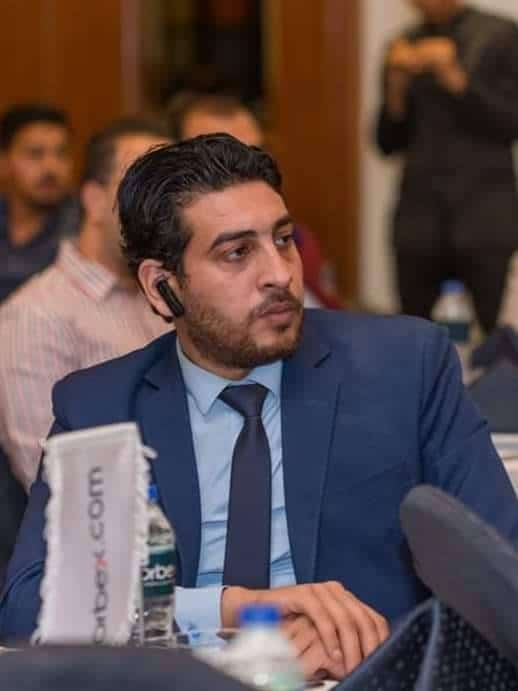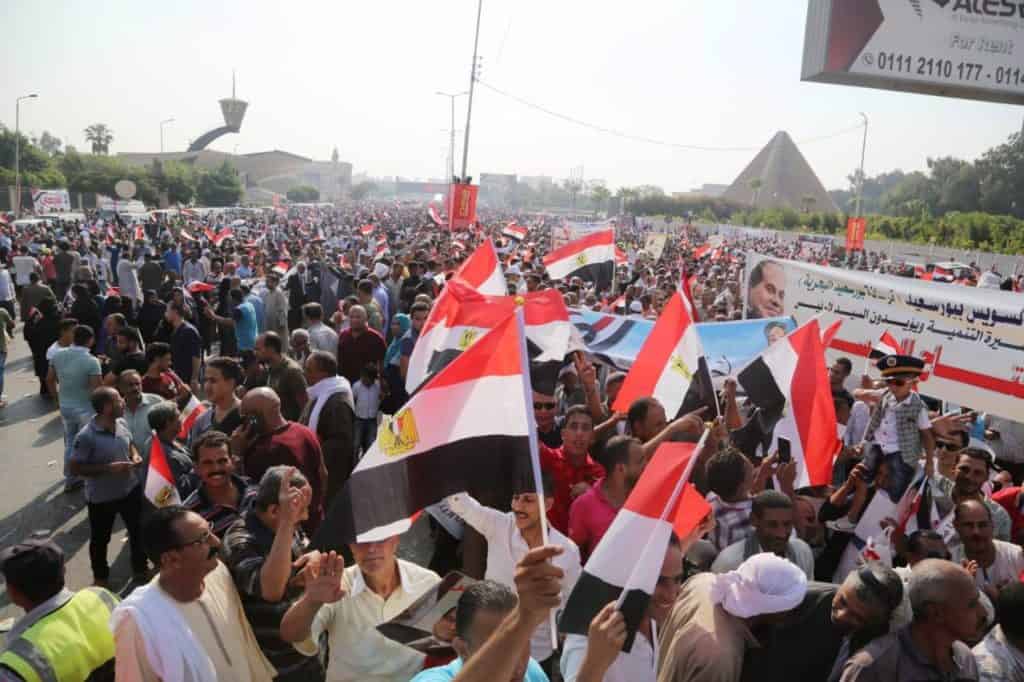Denis Korkodinov – Interview with Hisham al-Bakli
In April 2019, Egypt abandoned US efforts to create an “Arab NATO” with key Arab allies. This was a major blow to the Trump administration’s strategy of containing Iran’s power. In Cairo and several other Egyptian cities a number of manifestations of protest and social unrest were organized in order to overthrow the power of Egyptian President. But Abdul-Fattah Al-Sisi did not give up and, contrary to the expectations, is expanding its cooperation with European countries.

In this regard, especially for World Geostrategic Insights, we talked about this with Hisham al-Bakli, Director of the Center for the Study of the Middle East Salman Zayed (Egypt).
1. Recently, Cairo officially announced its intentions to become a regional gas hub, which will be able to supply gas to Europe. The basis for such conclusions was the information that the Israeli companies “Delek Drilling LP”, “Noble Energy” and “Egyptian East Gas Co.” in 2018, they gained control of the East Mediterranean Gas Co. pipeline, which connects southern Israel with the Sinai Peninsula in Egypt. As a result of this, Egypt will be able to export about 20–25 billion cubic meters of gas annually to Europe. In your opinion, is this a basis for rapprochement of the political positions of European countries and Egypt? What are the forecasts regarding the development of economic and political cooperation between Europe and Cairo? Could the Egyptian gas corridor serve as a basis for the deterioration of relations between Cairo and Ankara, given that Egypt intends to compete with the so-called Turkish Stream? Does the fact of the development of the Egyptian gas infrastructure, with the participation of Israeli companies, indicate that close relations have developed between Cairo and Tel Aviv?
Hisham al-Bakli – The gas file is one of the most important files between Egypt and Europe, which caused a lot of controversy over the past period, because this file is associated with Israel. But the reality is that the Egyptian government and private gas companies are able to turn Egypt into a regional gas export center, which will certainly have a positive effect on the development of relations between Cairo and European countries.
According to economists, the volume of trade between Cairo and the EU will increase by 5%. In addition, the development of economic relations will positively affect the political and diplomatic positions of Egypt. First of all, this presupposes mutual coordination on all issues relating to Egypt and especially on issues of Turkey’s interference in the affairs of the region as a whole. The gas dossier is indeed the basis for the escalation of the Egyptian-Turkish dispute, although the root cause of the conflict arose due to the attitude of Recep Erdogan and Abdul-Fattah Al-Sisi to the Muslim Brotherhood movement.
The gas fields of Cyprus and Greece have further complicated relations between Egypt and Turkey, and the closer Egypt is to the completion of the gas file in the Mediterranean Sea, the more active is the Turkish attack on the Egyptian administration. As a result of this, disagreements arise between the countries on the political system as a cover for a real gas clash in the Eastern Mediterranean.
We cannot deny Egyptian-Israeli relations in the current period, but, from my point of view, these relations are considered as actual politics.
Thus, Egypt is responsible for the Palestinian cause, and the solution of this issue in accordance with the Egyptian strategy cannot be achieved without preliminary guarantees of Palestinian security. In turn, the Palestinian factor requires dialogue between Egypt and Israel, which somehow creates the basis for the consolidation of government relations between the countries.
2. In early August 2019, transcripts of the talks held in the fall of 1973 by the US Secretary of State Henry Kissinger and the Ambassador of the USSR to Washington Anatoly Dobrynin were published. Discussing the “Doomsday War” between Egypt and Israel, the participants in the conversation came to the conclusion that it was not equally beneficial for the United States or the USSR for the war to end with the victory of Cairo or Tel Aviv, as this would have negative consequences for Soviet and American foreign policy. Projecting this conversation today, is it fair to say that the United States and Russia are unanimous in their opinion that they do not need strong Egypt or that the situation has changed over time, and now the international community is interested in making Egypt really strong, given that that Cairo is actively fighting the “Islamic State” on the Sinai Peninsula?
Hisham al-Bakli – The situation is now different from 1973. In reality, the Soviet Union and Washington at that time were fully aware that the superiority of Egypt or Israel would significantly extend the conflict in the region. However, after reaching a peace agreement between the two countries, Israel did not enter into any war with the Arabs, with the exception of the 2006 war, which was supported by Iran.
The international community is currently striving to balance the position of Cairo and Tel Aviv in the region. In particular, when Egypt purchased Rafale military aircraft from France, Washington immediately announced the delivery of F-35 aircraft to Israel as a message that Washington had sophisticated air defense weapons. The US wants to maintain the superiority of the Israeli Air Force over the Egyptian in order to create parity between the defensive and offensive forces.
3. September 20, 2019 in Cairo and a number of other cities in Egypt, mass protests of an anti-state orientation began. The reason for the mass demonstrations was the video of an Egyptian blogger living in Spain, Muhammad Ali, who sharply criticized Egyptian President Abdul-Fattah Al-Sisi. In addition, Advisor to British Prime Minister Boris Johnson, Wafik Mustafa, who is also a native of Egypt, through his public appearances, made efforts to develop anti-state protests in Cairo. Thus, Egypt may face another attempt to revive the “Arab spring.” Meanwhile, many experts are unanimous in the opinion that the social unrest in Egypt is a manifestation of revenge on the part of the international community (USA and Saudi Arabia) for the fact that in July 2019 Abdul-Fattah Al-Sisi refused to join the Middle East strategic partnership, better known as “Arab NATO.” Is it really? Can it be argued that the social unrest in Egypt was artificially provoked by external forces interested in a coup? How big is the interest in the United States, Great Britain and Saudi Arabia?
Hisham al-Bakli – In fact, the nature of social unrest in Egypt is very complex. Of course, external forces are behind the protests, which aim to overthrow the Egyptian political regime and revive the “Arab spring.” Muhammad Ali and Wafik Mustafa almost simultaneously spoke out against Egyptian President Abdul-Fattah Al-Sisi, which led to an increase in protest activity in Cairo and other cities.
However, while Muhammad Ali, as a rule, is distinguished by amateurism (his videos are amateurish and are designed exclusively for the poorly educated layer of the Egyptian population), then Wafik Mustafa, who is an adviser to the head of the British cabinet, used a wide arsenal of professional media and influence groups to criticize Egypt. This leads to the conclusion that Great Britain has a great interest in organizing Egyptian riots.
Meanwhile, this is not normal. Of course, in Egypt there are many problems, as a result of which some categories of people may be unhappy. But this is not a reason for the organization of a revolution. The economic problems of the population did not arise under Abdul Fattah Al-Sisi, but it was the President of Egypt who was trying to solve these problems for the benefit of his people and his state.
Egypt’s stance on the so-called “Arab NATO” directed against Iran was a decisive blow to US actions in this context and led to the complete collapse of the alliance. Egypt is well aware of the consequences of an unaccounted-for military confrontation, especially when Washington wants forces to fight on its behalf.
I think Washington is aware of the reality of things in Egypt. Both Al-Sisi and Trump have a great convergence of views, unlike Obama and Mubarak, who had significant differences. As for the Kingdom of Saudi Arabia, it is doing everything possible to stabilize the situation in Egypt. Saudi Arabia is extremely interested in maintaining good relations with Egypt, which is primarily due to the security of the Kingdom. Indeed, Egypt, through its regular army, protects the western borders of the Saudis. “Therefore, Riyadh does not intend to create any difficulties for Egypt, including in the form of social unrest. A calm Egypt is the key to the security of Saudi Arabia.”







